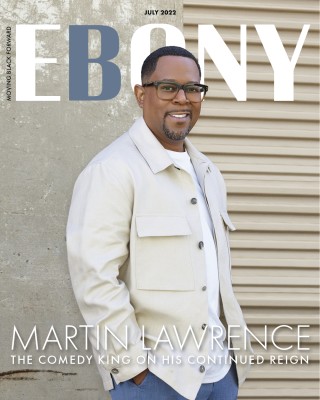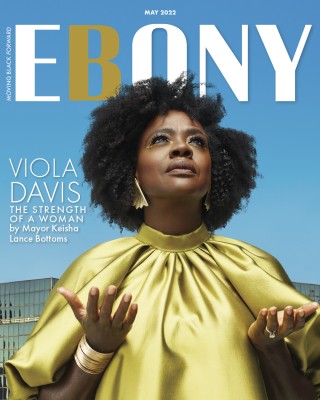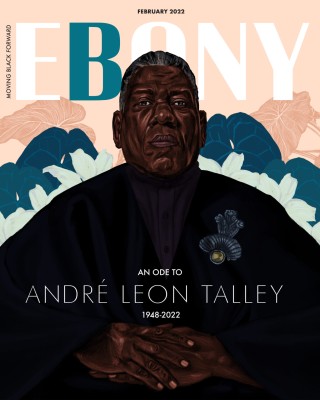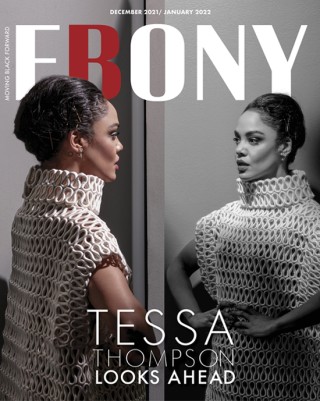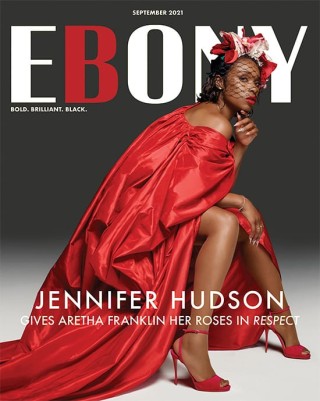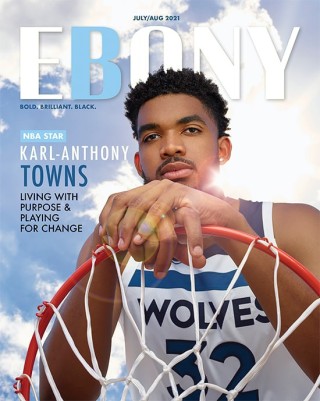Ode to Jeffrey Wright: It’s All Love
Written by Elias Leight on February 14, 2024

Love is most commonly classified in four ways: storge (familial); philia (friendship); eros (romantic) and agape (“Godlike” for your fellow human). In the African diasporic community, we like to think there is an additional type that belongs strictly to us: BLACK LOVE. Black love foundationally shows up in our persistence to exist every day; it’s radical and distinctively ours. It emanates not solely in our DNA but in how we create meaning for ourselves. We choose it, as the late Gloria Jean Watkins, also known as “bell hooks,” defined while affirming that it is more than a feeling but an action. Before her time, writers like Alain Locke, (dubbed “Dean of the New Negro Movement” or Harlem Renaissance) captured the lifeblood of Black love in how our community exudes it through creative mediums such as art and literature.
Love requires fierce imagination and execution—no one embodies this conception better than Jeffrey Wright.
As an actor, Wright’s archetype is rooted in a genuine love of storytelling. Fortunately, this adoration has resulted in a body of work that presents a variance of Black life. When Wright shows up on screen, he commands your attention with an infectious energy that moves the viewer to feel what he intends to articulate. When he arrived on set for EBONY’s cover shoot, the room was still for a quick moment in an undeniable consensus that we were all in the presence of greatness.
In short, he deserves all the things.
Once Wright was suited and ready to go, the vibe instantaneously transformed into a Motown-laced reverie in which the past was both realized, reflected and honored. To watch Wright behind the scenes was to have a front-row seat to the care that he has poured into his craft over the span of his career. He genuinely sits in a bespoke genre of his invention. The fruits of his labor manifested in a recent Oscar nomination for his latest film, American Fiction. Serendipitously, this acknowledgment comes exactly three decades after his Tony Award win for Best Featured Actor in a Play for his performance in Angels in America—way overdue. There’s even a bit of irony for this to be the project that earns him a nomination, given the subject matter of the film. But how does an institution best pay homage to a man who has taken on many of the most iconic portrayals, from Jean-Michel Basquiat to Muddy Waters and Martin Luther King Jr.? And that’s just to name the ones he believes he’d personally enjoy a guy’s night out with.
Once the shoot wrapped, we hopped in a black car service to Wright’s next destination. As the driver buzzed through the streets of Brooklyn, Wright spoke intently and humbly on the role of an artist in a way that resembled Black contemporary figures like James Baldwin, whom he missed taking a guest lecture course with while he was enrolled at Amherst College. “It’s one of the regrets of my life,” Wright recalls. “I think he only gave three lectures. I was playing lacrosse, and I got injured that year. I am embarrassed to say that I missed his lectures, and he passed away not too long after that. I don’t even care to speak about it.”
It’s one of the regrets of my life. I think he only gave three lectures. I was playing lacrosse and I got injured that year. I am embarrassed to say that I missed his lectures and he passed away not too long after that. I don’t even care to speak about it.”
Jeffrey Wright
The D.C. native is widely recognized for his range and the incomparable uniqueness he gives to the characters he takes on. Whether fictional or nonfictional, each interpretation is never the same. Few Black actors have been able to play a multitude of roles that chronicle Black historical figures yet are unrecognizable in each one. This speaks to the singularity of his gift, which he attributes to his time spent in Western Massachusetts. It was there where he honed his acting chops, soaked up the breadth of endless artistic opportunity and developed lifelong friendships.

“As an actor, [Western Massachusetts] is where it begins for me. I hadn’t done anything before that. What was wonderful about my time at Amherst College was that I found the freedom to explore outside of what I thought were my primary interests because of the Five College Consortium. It’s a beautiful area, but there was also a really interesting group of thinkers and artists around the school,” he ruminated. “[Ekwueme] Michael Thelwell taught there and his wife was the head of a theater group at UMASS Amherst that did a range of really interesting work. The first piece I did was an adaptation of Wallace Terry’s novel Bloods which is about black Vietnam veterans and their recollection of their experiences. This was the beginning of my pathway as an actor and it leads directly back to Western Mass. The first day I was in an acting class, I was asked to perform a scene. I knew at that moment that this was what I was going to be doing for a while. I am indebted to that place.”
Since its release at the end of 2023, American Fiction, Cord Jefferson’s directorial debut, has generated dialogue across groups about the duplicity of America’s commodification of Blackness—Black literature specifically.
“In creating this character, there were so many interesting, fortunate and not-so-fortunate overlaps between Monk’s circumstances and my own…I’ve never been asked to play within a dynamic like this before on screen.”
Based on novelist Percival Everett’s 2001 book Erasure, American Fiction delves into how the Black community reckons with the knowing of self-preservation versus selling out. Splendidly satirical, the film entertains a multitude of perspectives on the matter through each character’s accordance with one another. Wright plays Thelonious “Monk” Ellison, a Boston-born writer who struggles with maintaining his authenticity in a publishing marketplace that leans heavily on adulterated “Black” stories that bring validity to banal generalizations.
The character Monk is full circle for Wright in many ways. Not only did the role bring him back to a state that he accredits his earliest beginnings to, but it paralleled tropes that reflect his own reality. “In creating this character, there were so many interesting, fortunate and not-so-fortunate overlaps between Monk’s circumstances and my own. Less so in terms of his professional or personal frustration but more so relative to the pressures that he’s experiencing regarding responsibilities to family and caretaking,” said Wright. “My mother passed away a little over a year before I got this script from Cord, so it was that side of the story that really struck me on an intimate emotional level. I found myself saying, ‘I’ve never been asked to play within a dynamic like this before on screen.’ It was that aspect of the film that is the antidote to the absurdity of the satirical side of the film.”
During his conversation with EBONY, Wright shared more of his thoughts about the place of Black imagination, creating meaningful work and doing it all from a place of love.
EBONY: Congratulations on American Fiction’s Oscar nominations. How does it feel for the film to be recognized in this way?
Jeffrey Wright: I’m really pleased that the film was acknowledged in such a broad way by our colleagues. Being nominated for Best Picture is reflective of the work that everyone did to make this story. Having Sterling [K. Brown] being acknowledged for his work, Cord being acknowledged for his screenplay and Laura Karpman for her score just reflect the type of collaboration that went into making this film. That’s the best part about what we do; it takes a lot of different parts, a lot of different hands, a lot of different talents and skills. Everyone involved in this film was passionate about the story, first and foremost. It’s just really cool to be acknowledged.
You seem to give your all and complete dedication to every project you touch. Is there such a thing as a work-life balance that is achieved with that?
What I do is just a job like anybody else’s job. I go to work, I do my job, and then I go home. I try not to think about my work when I’m not on set. I used to when I was younger and had the time and space to think about a role almost 24 hours a day. Like with Basquiat, he was constantly on my mind. I was constantly thinking, referencing and trying to find him while walking through New York City. As I got older, I couldn’t afford to do that anymore. I have children, responsibilities to family and things like that. I don’t have any difficulty separating the facts of my life from the fiction of the stories. As I’m sure you know, it’s just part of the job.
Without question, you’ve been a leading man for some of the most iconic films and plays in history. What guides you when you decide to sign on to a role?
I choose roles because they’re interesting to me; therefore, they might be interesting to audiences. I choose them because they seem to be about smart things and people, and they are crafted in smart ways by smart collaborators. That’s what I like to dive into. I like to dive into stories that are ideally new for audiences and not retracing old steps. That keeps me interested, engaged and focused.
“We’re rising above via the power of our imagination, absolutely in spite of.”
With your storied career, I can’t imagine that you have not been mentored or championed by others. Who have been influences who encouraged you to stand in your convictions and find your own agency as an actor?
There’s a line from Angels in America where Tony Kushner writes, “Everyone who makes it in this world makes it because someone older and more powerful takes an interest.” There were many such people in my life during my career. Chief among them is George C. Wolfe, who directed Rustin. George and I have worked on I don’t know how many projects since we first worked together on Angels on Broadway in 1993. But there were directors when I was even younger, like Hal Scott, who gave me my first equity job in a role that Lorraine Hansberry had written for him in a play called Les Blanc. He was head of the theater department at Rutgers but cast me in my first legitimate role down in Washington at Arena Stage. Joe Dowling, an Irish director, hired me early on four or five times. Lloyd Richards at Yale Repertory Theater and the Yale Drama School provided space for me to work three years in a row after I moved to New York on three separate plays. They took an interest in me.
Then there were actors early on who gave me a bit of advice. Sidney Poitier, whom I first worked with on my first major role in a major production, the miniseries Separate but Equal, took an interest. Albert Hall and Cleavon Little, who worked on the film, were incredibly gracious toward me and supportive and appreciative even though I was young and had no idea what I was doing. They took an interest in me. I’ve had the opportunity to work with Wes Anderson on multiple occasions. He’s said that he has seen every bit of theater that I’ve done in New York prior to writing the role for me in French Dispatch, which is one of the most beautiful pieces of writing that anyone’s ever offered me.
I don’t have enough digits to count all the people who have taught, assisted and collaborated with me in my career in a way that allows me the position I enjoy today. Another wonderful part about this work is that we don’t do it alone.

“Everyone has access and the right to the ownership of freedom… no matter who they are.”
What is one of the greatest lessons you’ve taken with you thus far?
I’ve been fortunate to find some ideal artists who really shaped the nature of my career. As I’ve gotten older, I’ve learned to avoid those who detract from the quality and enjoyment of the work. I’ve learned to choose more wisely. I’d like to think so.
In the film, Monk leans into a vivid stream of imagination to become Stagg R. Leigh and critique the publishing system. Can you expound on the power of Black imagination in shaping the future?
The work that we do is born entirely of the imagination. I’ve made my career, fed my children, supported my family, been fortunate enough to travel the world and have access to rooms across the spectrum on account of my imagination. But the imagination is not just a playground. Imagination is how we look toward the future. It drives the choices that we make based on what we perceive is coming next. So there’s often a disparagement or under-appreciation of the artistic folks in our society across the board. But at its best, it’s the artistic community that shows us the way forward.
It’s them that shine perspective on the future based on an understanding of the past but also an imagining—or reimagining—of what comes next. That’s the role of the creative community. In regard to the Black community in America, very often we didn’t have the material things or opportunities, so the power to conjure through imagination has always been heightened. It’s a powerful tool that changes the cultural landscape forever. But still, we’re rising above via the power of our imagination, absolutely in spite of.

While under the guise of his pseudonym, Monk says “Words belong to everybody.” What do you feel belongs to everyone?
“As far as our country goes, I think everyone has access and the right to the ownership of the freedoms it offers and to the rights of citizenship here—no matter who they are. There’s a type of freedom—creative freedom, intellectual freedom, freedom to be alive in one’s own skin, freedom to be an individual—that belongs to all of us. No matter what the resistance out there is to that, it is ours. It applies to the sense of place we have in this country and society. We’re here. When we seize on that idea, it gives us a greater sense of power and ability to overcome the things that frustrate us. Still, we just keep pushing.”
Savannah Taylor (@savmtaylor) is a writer, storyteller and multihyphenate creative who is in love with all things Black culture and community. She currently serves as an editor and Senior Interactive Producer at EBONY.
PHOTOGRAPHER: DANTE MARSHALL
COVER STORY: SAVANNAH TAYLOR
EXECUTIVE PRODUCERS: PETE SESTINA, ADAM REYNOLDS, & BRENT BARBANO
ON-SET PRODUCER: JASELLE MARTINO
VIDEO: DENIM PICTURES
STYLIST: MONTY JACKSON
STYLIST ASSISTANT: AMANDA DAY
GROOMER: JENNY SAUCE
CREATIVE DIRECTOR: SUSAN LINSS
SET DECORATOR: CARYN NOVAK
ART PRODUCTION ASSISTANT: DAVID KIRWAN
STILLS ASSISTANT: CASSIDY MEYERS
STILLS ASSISTANT: DANIEL RANDALL
DIGITECH: EDWARD PAGES
PRODUCTION ASSISTANTS: KADEEM WALTERS & RACHEL BILLINGS
EBONY TEAM
CEO: EDEN BRIDGEMAN-SKLENAR
EVP, BRAND & MARKETING: ASHLEE GLENN
LEGAL COUNSEL: LOREN PRIZANT
DIRECTOR OF PR & EXTERNAL COMMUNICATIONS: BJ COLEMAN
TALENT DIRECTOR: ASHLE MITCHELL
FASHION & BEAUTY LEAD: VICTOR VAUGHNS
SENIOR INTERACTIVE PRODUCER: SAVANNAH TAYLOR
SOCIAL MEDIA DIRECTOR: RACHEL JENKINS
PRODUCER, SOCIAL CONTENT: GITORY BARTELL
GRAPHIC DESIGNER: JOHN BRUTON
BRAND & MARKETING COORDINATOR: JEANA EDNEY
The post Ode to Jeffrey Wright: It’s All Love appeared first on EBONY.
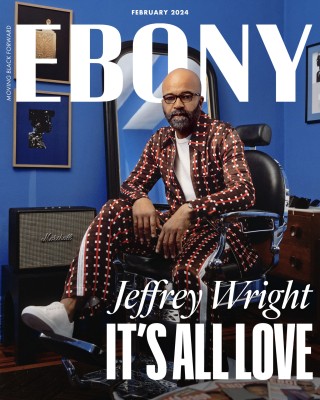

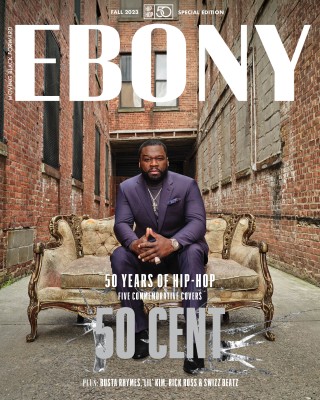
![The Chi Cover Final Cover[63]](https://www.ebony.com/wp-content/uploads/2023/07/19/The-Chi-Cover-Final-Cover63-320x426.jpg?t=1696274390)
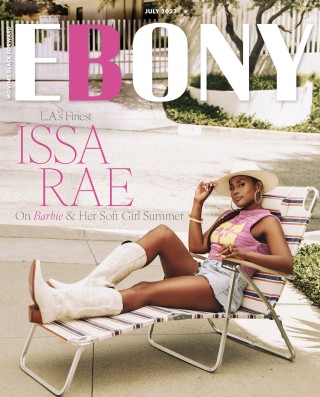

![Hailey Bailey Cover[1]](https://www.ebony.com/wp-content/uploads/2023/05/02/Hailey-Bailey-Cover1-320x426.jpg?t=1693598909)
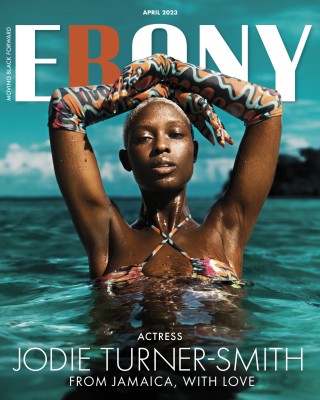
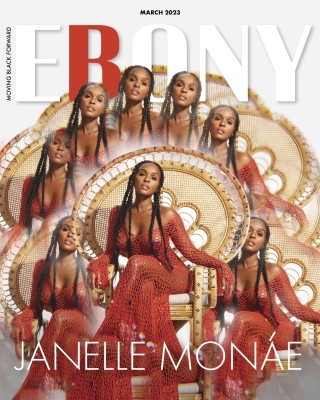
![Jonathan Majors Retouched Cover eye[1]](https://www.ebony.com/wp-content/uploads/2023/02/05/Jonathan-Majors-Retouched-Cover-eye1-320x426.jpg?t=1693765236)


![CIARA- 1st cover drop[1]](https://www.ebony.com/wp-content/uploads/2022/09/CIARA-1st-cover-drop1-320x426.jpg?t=1693401642)

